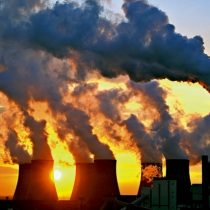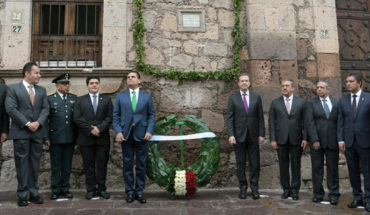
Climate change is one of the most important challenges that will be addressed and addressed globally in the field of work in the coming years. The International Labour Organization warns that the phenomenon is producing, in the short, medium or long term, a serious disruption of economic and social activity in many sectors on all continents.
It is worth noting, as mere representative examples, the impact of global warming on the agricultural, energy and tourism sectors.
In agriculture and livestock. Climate change and increased frequency and intensity of extreme weather events will affect crop yields and livestock management and influence the choice of production sites.
In the energy sector. Global warming is going to have a direct effect on both supply and energy demand.
In tourism. Rising temperatures in warm areas and the disappearance of snow cover in the case of winter tourism will affect the sector. If data are analyzed by country, Spain is one of the European states most vulnerable to climate change.
Globally, global warming and its consequences make it difficult to achieve the Sustainable Development Goals set by the United Nations Development Programme.
Will they lose jobs?
Climate change is causing direct consequences in terms of job losses and social and indirect cohesion in meeting the 2030 Agenda. For this reason, it seems necessary to foster a transition to another productive model in which ecology and employment come together.
This just transition can be defined as a shift towards inclusive, low-carbon economies that maximizes opportunities for economic prosperity, social justice, rights, and social protection for all, leaving no one behind.
It is therefore appropriate to design a green industrial policy aimed at triggering and facilitating the structural changes that are required. These will be applied both to respond to environmental conditions or situations and to develop a green and circular economy (defined as one that improves human well-being and social equity, while significantly reducing environmental risks and ecological scarcity).
The so-called Green New Deal has been proposed from the European Parliament. The initiative envisages reducing greenhouse gases, decarbonizing energy, transforming the use of clean and renewable energy and taking the step to transforming the economy into a circular one.
Precisely these changes in the ways and ways of producing will also create employment opportunities.
A transition that guarantees decent work
In Spain, the Fair Transition Strategy will be the “state-level instrument aimed at identifying and adopting measures to ensure equitable and supportive treatment for workers and territories in the transition to a low greenhouse gas economy”.
All the planned and incorporated transformations must not forget the commitment to decent and dignified work. They must combine the change of standards with respect for social rights in order to strengthen a model of sustainable development and decent work.
The new or renewed industry must be sustainable, both in its industrial processes and in products, enhancing the efficient use of resources, the optimized use of raw materials and the proper treatment of waste. It must also be socially sustainable, betting on decent jobs.
Sustainability and labour protection must be pooled, as demanded by the International Labour Organization and bet on green and decent jobs. The services provided by working persons should not contribute to environmental degradation, nor should business actions undermine the dignity of working conditions.
Henar Alvarez Cuesta, Senior Lecturer, University of Labour and Social Security Law, University of León
This article was originally published in The Conversation. Read the original.





